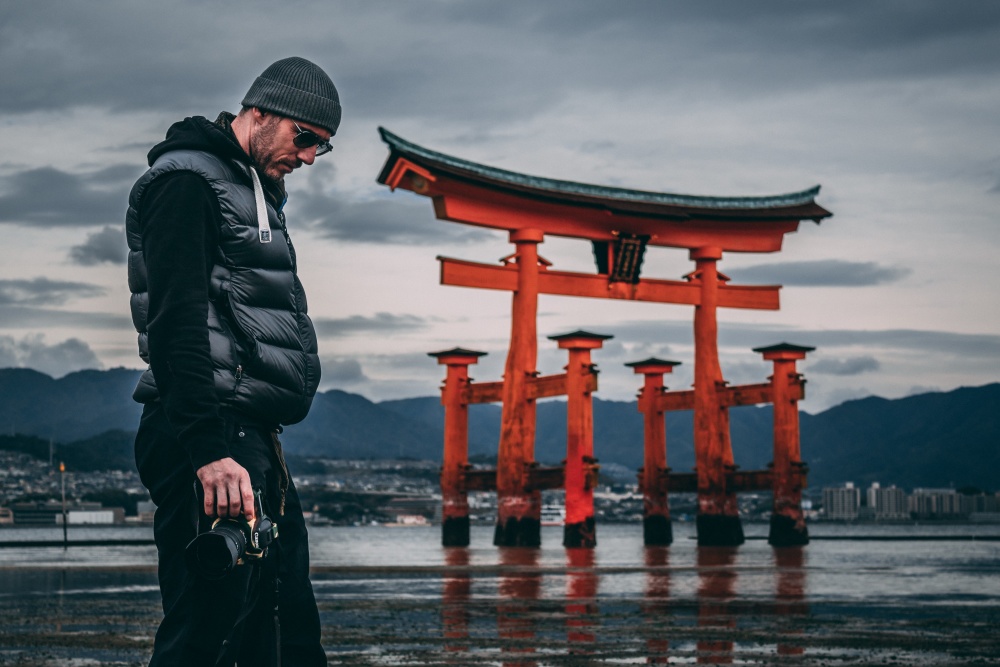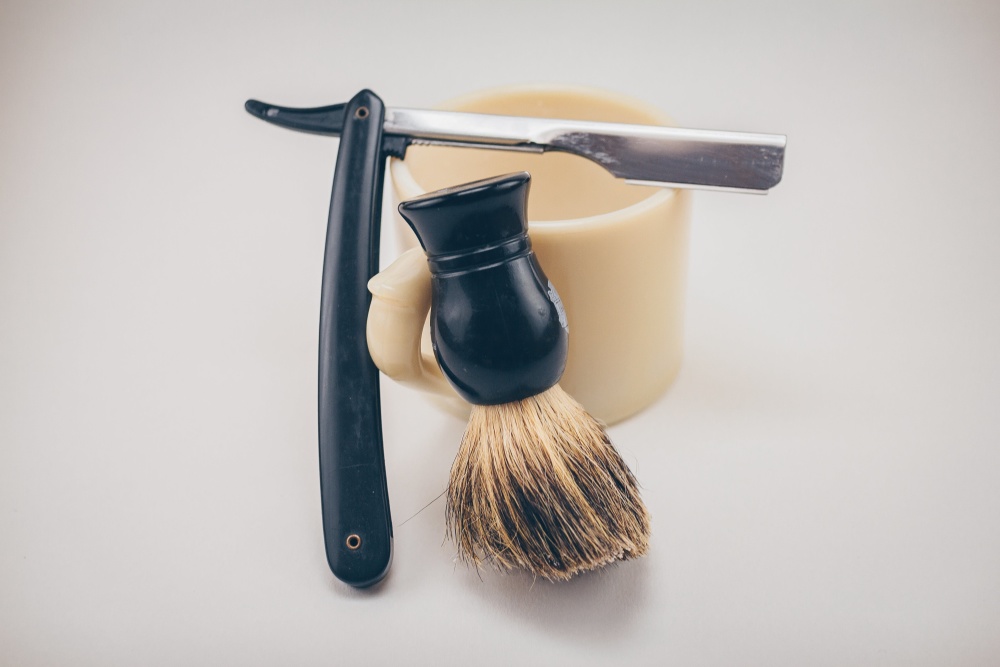Updated December 1, 2023
Beards in Japan: All You Need To Know
Facial hair might not be a big deal in some places. But if you're thinking of growing a beard in Japan, you should know the implications.
Because in some societies, having facial hair is associated with unkemptness. Or even unprofessionalism. In some countries, you might even see job listings with “no beard” requirements.
As you may have guessed, Japanese society tends to prefer a clean-shaven look. This might sound a bit worrying, but remember: it's just a preference. People in Japan won't be afraid of you because you have a beard.
Still, there's a lot of history behind the topic of beards in Japan. So today, I'll explore Japan's perceived stigma around facial hair. How did it come about? How has the culture around facial hair evolved? And should you shave your beard before coming here?
Let’s go back in time and start with a brief history lesson.
In this article: 📝
The History of Beards in Japan: From Samurai to Salarymen
I know I started by describing the cultural taboo around beards in Japan, but did you know that facial hair was a symbol of the upper class at multiple points in the country’s history?
It may sound weird, but it’s known that before the Edo period (when the military dictatorship was in power) in the medieval era of Japan, both facial hair and long hairstyles carried great importance among men.
In fact, both were sported by the Samurai, who were highly-regarded members of society. So, facial hair (which is called hige in Japanese) and long hairstyles were once wildly popular among those who belonged to the so-called upper echelon.
Japanese Men With Beards: A Love-Hate Relationship
From this point on, Japan’s relationship with beards shifted multiple times throughout history.
During the Meiji Era, also known as the restoration era of Japan, imperial rule was reinstated, and the period came to be known as a period of peace.
At the time, there was a great cultural shift away from the acts of war and fighting and towards becoming a civilized society. This meant that the Samurai facial hair, which was associated with their warrior pride, had to go.
This just might be the time when the prejudice towards hige in Japan was cemented. It was during this period that cleanly-shaven faces among men became the norm, and those who still had beards, like the Ainu people in Hokkaido, were even labeled bluntly as “savages.”
However, fashion has always proven to be cyclical, and things that go out of style have a habit of making a big comeback.
Before the Meiji period ended, mustache and beards arrived in Japan again, as a Western influence, making hige popular among men of honor once again.
This would be the beginning of a cycle of loving, then hating beards, then adoring them all over again, all the way until the Showa era in the ‘80s.

Facial Hair in Japan Today: The Modern Era
In modern Japan, facial hair became unpopular once again after the ‘80s, and the clean-shaven look became the symbol of professionalism, tidiness, and looking presentable.
The no-beard look also became the “modern-traditional look” that was and still is favored by the corporate-focused lifestyle that was popular at the time. I talked extensively about this in my post on Japanese Salarymen.
So, in modern Japan, a clean-shaven face quite literally became the norm, and anyone who wanted to get a job and have a career had to shave without exception. This is still more or less the case in Japan today, but things are not as strict.
It’s a rare case, but there was even a report from 2008 where a postman from Osaka fought back against his employer, who said that he needed to shave his beard off if he wanted to continue working. Lawyers rallied behind him back then, saying that this was a violation of human rights.
So, things have been changing in the past couple of decades.
Even though the practice of growing a beard is still somewhat rare in Japan, having facial hair may not be an issue anymore, depending on where you are in Japan and what your background is, of course.
It’s still a no-go if you’re Japanese and want to have a career at a traditional Japanese company, but it can absolutely work if you’re employed in an international company or a tech business where the environment is diverse and much more relaxed.
We feature plenty of these companies on the Japan Dev Job Board, and tons of new opportunities from companies with the most humane practices in Japan are added frequently.
Now that you know where to look if you hate shaving daily, let’s talk about where to go if you want to sport a beard without turning heads in Japan.
Beard-Friendly Places in Japan
Even though growing facial hair is still not as popular among Japanese men as it is among the the foreigners who live in Japan, it’s not as big of a deal as before, especially in larger cities such as Tokyo, Kyoto, and Osaka.
You may still get some looks every so often, mostly from elderly eyes that still feel strongly about beards and see them as barbaric. Other than that, having a beard won’t affect you that much in these cities, if your workplace is also beard-friendly, of course.
The smaller cities in Japan, however, and the countryside, or the inaka, aren’t as accepting of facial hair.
Not that as a person with a beard in the smaller cities in Japan, you’d be an outcast of society, but you’ll still get more looks. Occasionally, you may get questions about your beard from strangers, but this will usually be older people who mean no harm.
So, nowadays, as long as you’re a good-natured and well-behaved person who respects the people and the rules they live by, it’s safe to say that you’ll generally be treated with respect anywhere in Japan.
Living in Japan With a Beard: The Foreign Dating Experience

By now, you should know that if you have a beard and are planning to move to Japan, you’ll generally have no problem in terms of safety or being openly disrespected. That being said, there are still a few issues that may mildly affect your life in Japan as a foreigner
Perhaps the biggest of these issues will be, without a doubt, dating.
This is, of course, not a problem if you’re dating other foreigners who live in Japan, but your beard may not be well-received by your Japanese dates.
Japanese women, and most Asian women, in general, tend to dislike beards and favor a cleanly shaved look. Keep in mind, however, that this is a generalization, and exceptions definitely do exist.
In contrast, the gay dating life may be more than welcoming when it comes to facial hair. It’s not unheard of for gay Asian men, in particular, to like the sight of a beard and even find it attractive.
Still, exceptions always exist, and as long as you approach people with genuine interest and respect, you may even be able to form a meaningful connection with someone who dislikes a beard. After all, preferences can change.
Conclusion: The Rise of Facial Hair in Japan
All in all, the most important thing to know is that having facial hair in Japan isn’t a problem for foreigners.
Yes, you’ll get looks and sometimes even questions regarding your beard and mustache, but you’ll be able to work in many great tech companies, international companies, and modern startups that don’t mind beards at all.
Besides, even if you are Japanese, it’s becoming somewhat normal to experiment with your facial hair, with many modern Japanese beard styles becoming popular among the Japanese youth.
Besides, we even see many famous Japanese people like Hayao Miyazaki, the creative genius behind Studio Ghibli movies, and the highly-regarded video game maker Hideo Kojima, who can often be seen sporting a beard.
So, Japan’s cyclical history with facial hair seems to be an indicator of future trends as well. The clean-shaven “salaryman” look has been losing popularity, and more and more people have been embracing growing a beard in style.
Who knows, the tides may change again in time, and Japan may eventually return to a uniform, fully clean-shaven look, but for now, you can grow your beard in Japan without a worry!
Frequently Asked Questions About Beards in Japan

If you’ve made it this far into the article, you probably know all there is to know about the culture of beards in Japan and how society perceives facial hair.
However, for those who are looking for short answers to some of the most burning questions on the subject, let’s answer some frequently asked questions about beards and facial hair in Japan.
How Are Beards Viewed in Japan?
While facial hair was once popular in Japan, it was also associated with untidiness, laziness, and barbarism throughout the country’s history.
This is why today, most Japanese men prefer a cleanly shaven look. That being said, it’s becoming more common to have facial hair in Japan, and it’s no problem for expats to have facial hair at all.
Can a Japanese Man Grow a Beard?
Yes, Japanese men can grow facial hair. However, Japanese people, like all other Asian people, are genetically less inclined to grow body hair in general, so the styles and thickness can vary from individual to individual.
Still, there are quite a few Japanese people who are perfectly able to grow full, thick beards.
Did the Samurai Have Beards?
While Japan may not be the most embracing when it comes to facial hair, beards, mustaches, and long hair were once a symbol of a warrior’s pride.
The Samurai often sported facial hair along with long hair, the latter of which was cut when the country entered into an era of peace.
What’s The Best City in Japan for Bearded Expats?
While a beard is not an issue for expats anywhere in Japan, you may still get some curious looks and questions here and there.
However, the likeliness of someone approaching you or looking at you because of your facial hair is much more slim in big cities, like Tokyo and Osaka. You’ll find that the people in the expat-rich parts of these cities, such as the Shibuya and Minato wards in Tokyo, are especially unfazed by the sight of a beard.
Get Job Alerts
Sign up for our newsletter to get hand-picked tech jobs in Japan – straight to your inbox.








